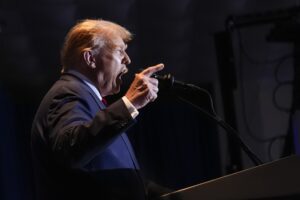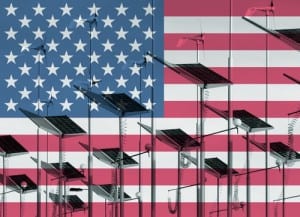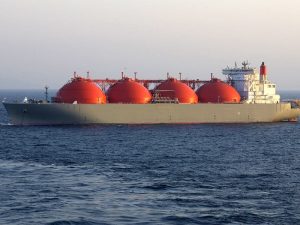U.S. Energy Secretary Rick Perry advocated for the country to stay within the Paris climate accord, but for the deal to be renegotiated, at the Bloomberg New Energy Finance Summit in New York last Tuesday.
In so doing, Perry joined 14 state attorneys and Secretary of State Rex Tillerson in publicly supporting sticking with the landmark United Nations agreement, which President Donald Trump pledged to scrap during his campaign.
“I’m not going to tell the president of the United States to walk away from the Paris accord,” said Perry at the BNEF Summit. “I will say that we need to renegotiate it.”
The White House has said a decision on whether the U.S. will remain in the accord will be made by the end of May, when world leaders gather for the Group of Seven Summit in Italy. Senior advisors to the President remain divided over what decision to take, with some Cabinet members concerned that staying in the pact could legally jeopardize Trump’s plan to roll back environmental regulations, according to a Bloomberg News article.
During his on-stage interview, Perry, who oversaw a record expansion of wind power during his tenure as Texas governor, endorsed supporting renewable energy and helping it “find its way to the grid”, although he made clear that fossil fuels would be the centerpiece of the U.S. energy mix. He vowed that the Trump administration would roll back regulations curtailing coal, gas and oil production.
Meanwhile, offshore wind in Massachusetts has taken another step forward following news that National Grid Plc, Unitil Corp. and Eversource Energy are planning to solicit bids for 800MW of power from turbines out at sea. This follows a state law signed last year requiring utilities to buy a total 1,600MW of offshore wind energy over 10 years. Developers including Denmark’s Dong Energy A/S and Deepwater Wind LLC are expected to compete for the contracts.
In Europe, Volkswagen AG plans to triple its investment in electric and hybrid vehicles over the next five years to as much as 9 billion euros ($9.8 billion), compared with 3 billion euros in the previous five years, Chief Executive Officer Matthias Mueller said last Friday. By 2025, VW plans to release more than 30-battery powered vehicles, as part of its effort to clean up its image following the diesel-engine cheating scandal in September 2015.
“Even if the modern combustion engine remains fundamental for at least another 20 years, it’s clear that the future is electric,” Mueller said at a conference in Vienna last week.
Air quality hit the headlines once again in the U.K. last Thursday after the High Court ruled that the government produce its consultation to reduce air pollution on May 9 and the final plan on July 31. Officials had previously asked to push the due dates back to June 30 and September 15, after local elections set for May 4, and the general election on June 8.
The U.K. has been in breach of the European Union’s air quality rules since 2010, surpassing the annual limit on some airborne toxins just five days into this year.
Across the Channel, the future of France’s future energy mix rests on the outcome of the presidential election on May 7. Centrist candidate Emmanuel Macron endorses the current plan to reduce nuclear output from 72 percent of France’s total electricity generation last year to 50 percent by around 2025. Macron says he wants to double France’s installed capacity of wind and solar power, pledging to launch tenders for 26GW of renewables by 2022. In contrast, National Front candidate Marine Le Pen supports nuclear power and wants to halt wind-turbine installations.
Source: Bloomberg New Energy Finance. Reproduced with permission.










